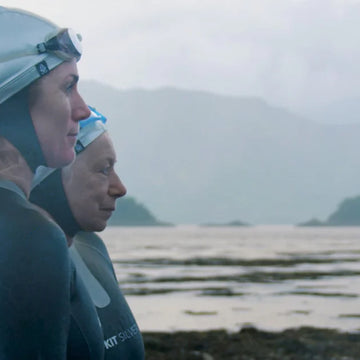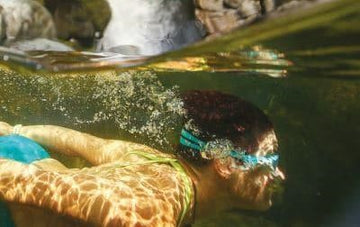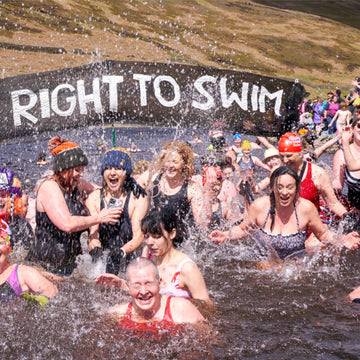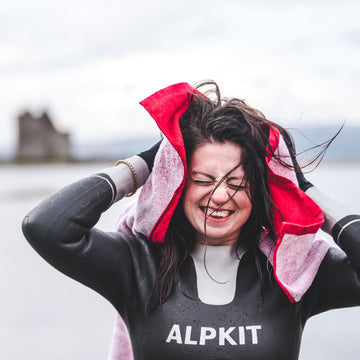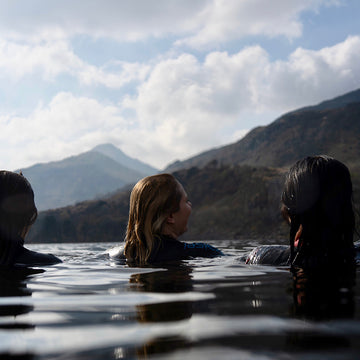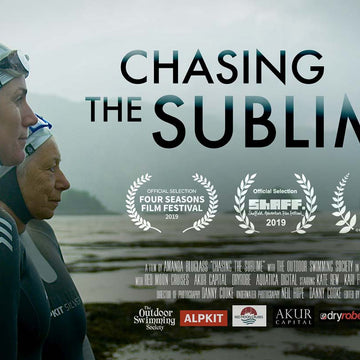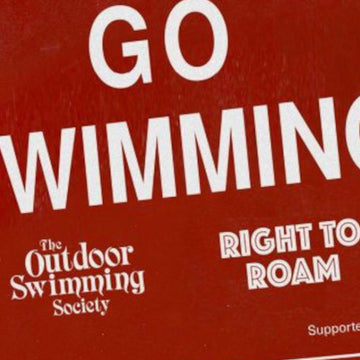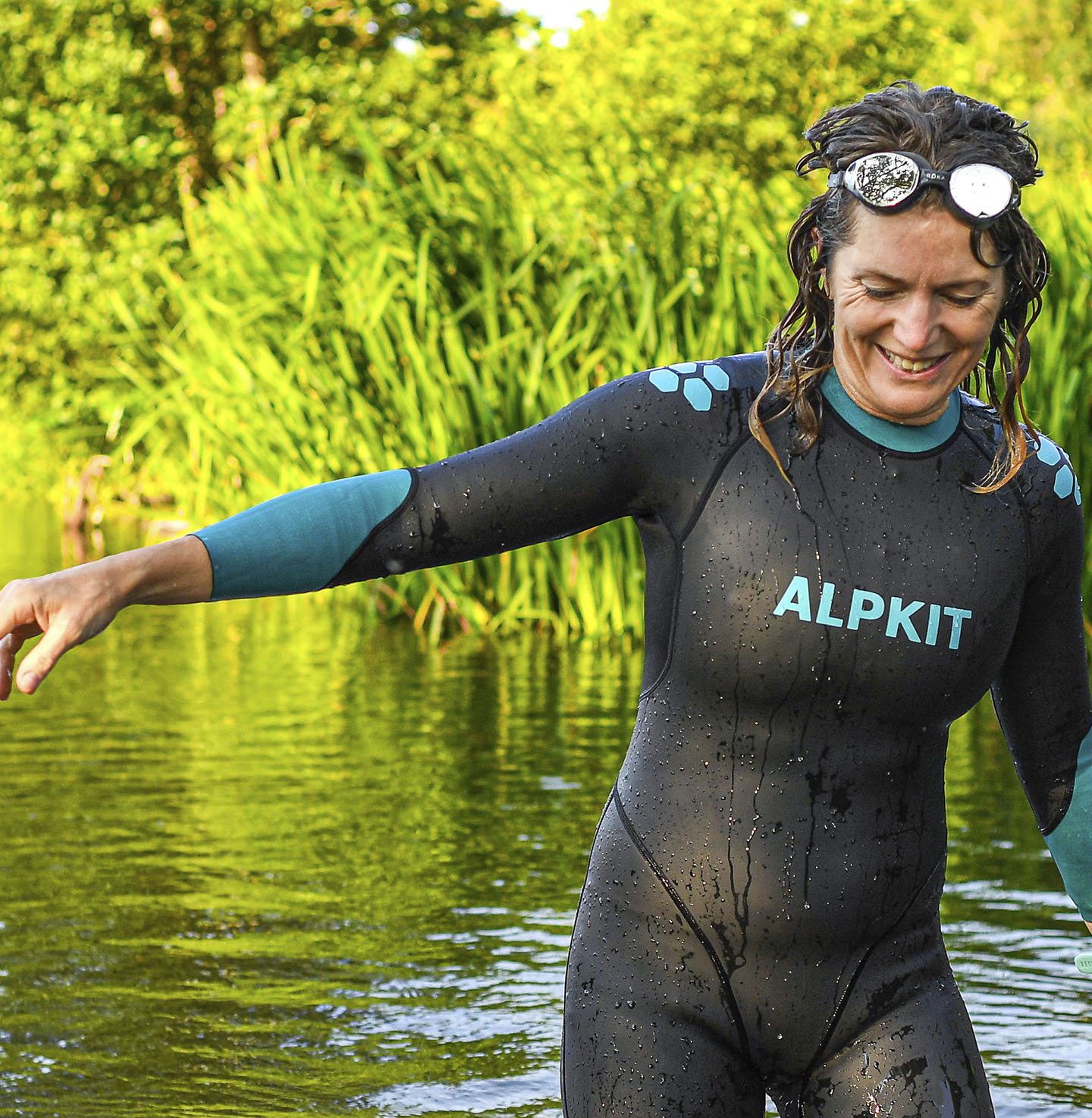
Kate Rew provides essential tips for exploring new swimming spots, highlighting the importance of safety assessments.
Alpkiteer Kate Rew is the Founder of The Outdoor Swimming Society and author of a new handbook that will help you swim anywhere. Here's a taste of what you'll find in The Outdoor Swimmers' Handbook. Kate shares her starter tips on exploring new swims.
No-one has done more to introduce people to the joys of fully immersing themselves in nature.

Knowing someone else has swum in a place gives us a feeling of permission. For me, finding a swim – seeing a place, or a picture of a place and working out how to swim there – is where the fun starts. I once took my whole family to the Eastern Sierra in California to swim in its meandering hot river and dip in its hot pots, based on images that popped up on Instagram. It was more dipping than swimming and perfect for our sons at the time: a Sunday afternoon we spent chatting to locals in pools on a ridge I will never forget, a shared experience found via a mutual love of water.
We always peer out over bridges as we drive about, and look out of train windows, studying and naming the rivers below. Swimming and descriptions of water pop up everywhere – fiction, non-fiction, newspaper articles – to get the dreaming started.

Necessity is often the mother of the best finds: the need to find a body of water to train in (but when I wake up, not when a pay gate opens) or to locate a place where a group of disparate friends can meet under a full moon. Maps are useful – OS maps for blue space, satellite maps for a virtual reconnaissance – followed by a willingness to get into conversations. You will likely develop a sixth sense for people who share your love of water, and from whom information can be gleaned.
A dream becomes a plan when you step back and look at the swim itself as a journey. Where is the best swim experience to be had, with whom and with what extras? But a good deal of planning is casting your mind over what might go wrong and putting ‘control measures’ in place. Swimmers call this ‘doing a DIY risk assessment’. On a simple plunge risks may be far and few between. On an epic adventure the risk factors (cold incapacitation, boat traffic, weather) could run to pages. You are not looking to remove risk – there is no such thing as a safe swim, only safe swimmers – but you are seeking to name the risks and manage them.
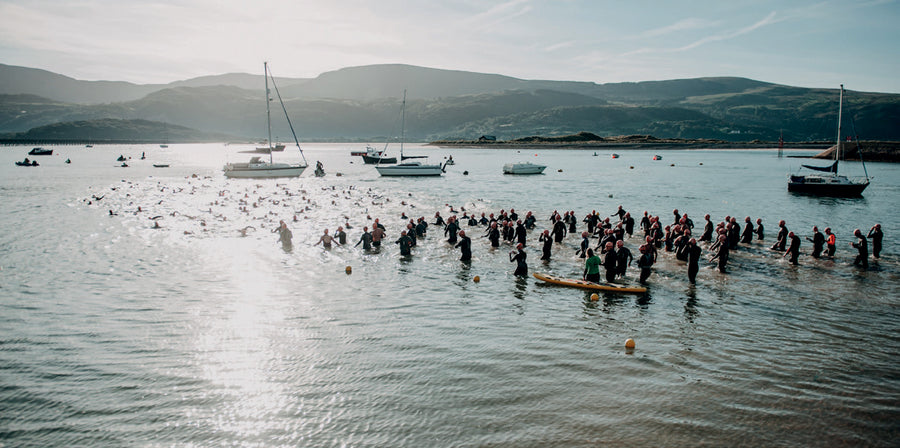
A DIY risk assessment
- Distance: How long is the swim and how long will it take? Are you fit for this distance or is there training or acclimatisation to do?
- Entry and exit: Do you have the strength to haul out where you jumped in? Will a falling or rising tide put an entry point out of reach?
- Water conditions: Is there a current or chop? What is the water quality? Do you need to delay for a few days while storm water washes through?
- Timings: Think about daylight hours, tides and other water users.
- Weather: What conditions (such as wind speed and direction) might make it easy, difficult, dangerous or impossible?
- Other people: Who, if anyone, is coming? Factor in confidence and open water experience: a physically strong pool swimmer may feel ‘out of their depth’ and struggle with fear and panic in big swell.
- Responsible use: Can you do this swim without negative impact? Think broadly here: this may mean avoiding crowded ‘honeypots’ and going elsewhere or washing, cleaning and drying all swim kit to avoid the spread of invasive species.
- Extras: Who doesn’t love the person who has a spare pair of goggles, brought emergency sandwiches or worked out that if you walk up the footpath behind the car park, you can see the entire stretch of river you have just swum?

![Straven [Womens]](http://alpkit.com/cdn/shop/files/womens-straven-2025-1.jpg?v=1744723504&width=768)
![Straven [Womens]](http://alpkit.com/cdn/shop/files/womens-straven-2025-3.jpg?v=1744723500&width=768)
![Tarka Wetsuit [Mens]](http://alpkit.com/cdn/shop/files/mens-tarka-2025-1.jpg?v=1744723498&width=768)
![Tarka Wetsuit [Mens]](http://alpkit.com/cdn/shop/files/mens-tarka-2025-4.jpg?v=1744730706&width=768)
![Tarka Wetsuit [Womens]](http://alpkit.com/cdn/shop/files/womens-tarka-2025-1.jpg?v=1744723496&width=768)
![Tarka Wetsuit [Womens]](http://alpkit.com/cdn/shop/files/womens-tarka-2025-3.jpg?v=1744730715&width=768)
![Terrapin Natural Swimming Wetsuit [Mens]](http://alpkit.com/cdn/shop/products/mens-terrapin-e.jpg?v=1695745450&width=768)
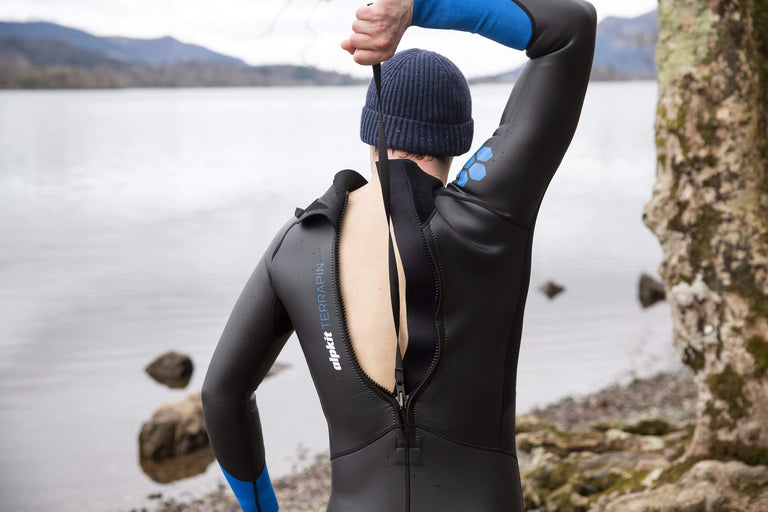
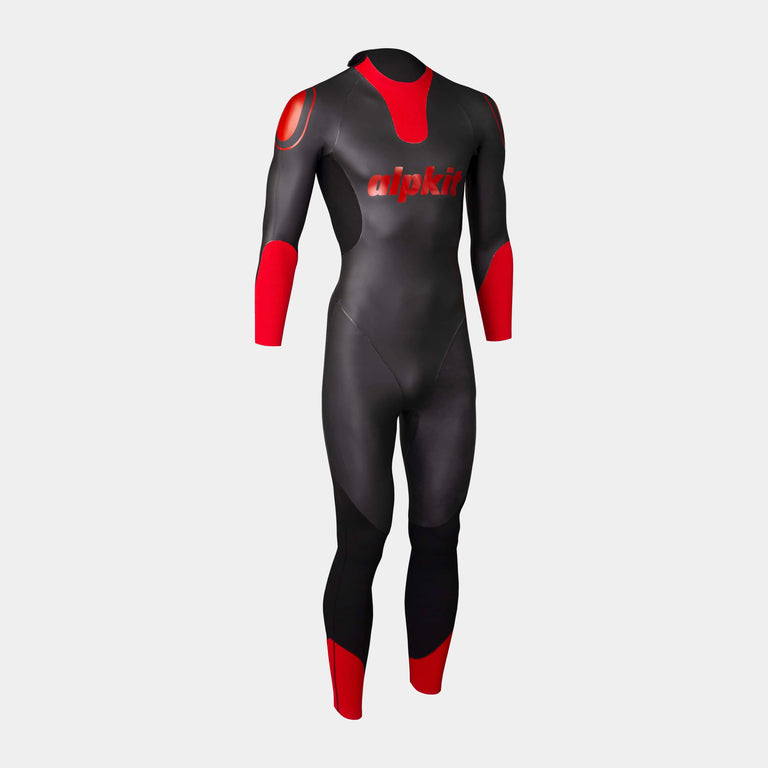
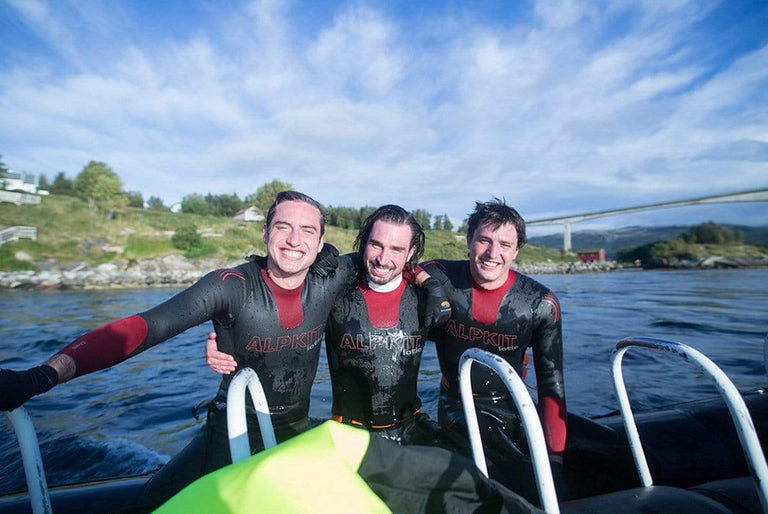
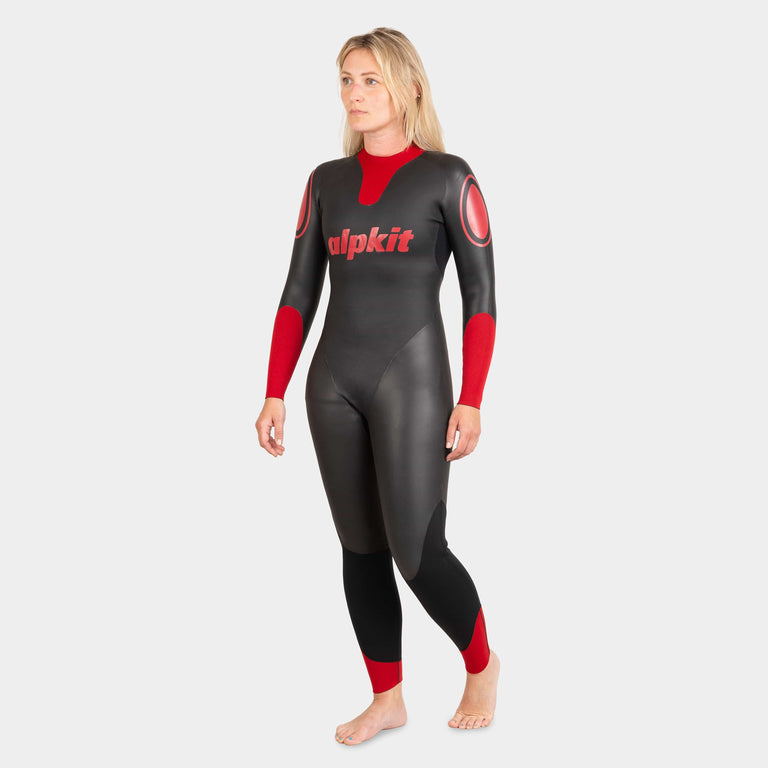
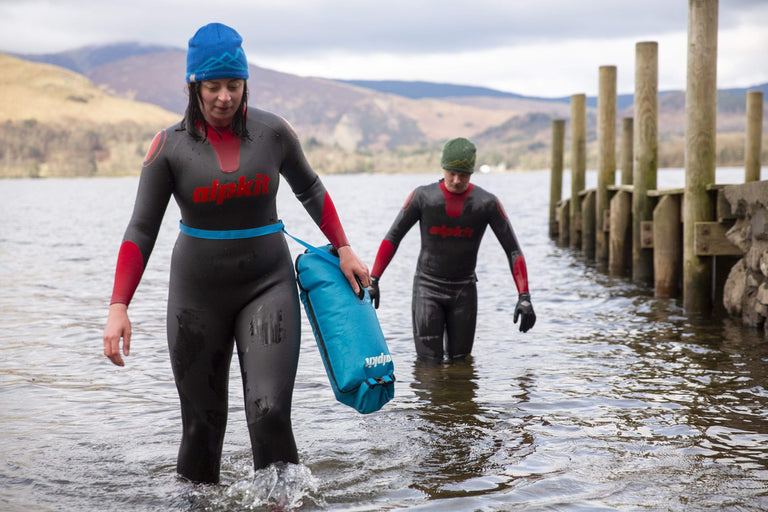
![Silvertip Cold Water Wetsuit [Womens]](http://alpkit.com/cdn/shop/files/silvertip-womens.jpg?v=1706614008&width=768)
![Silvertip Cold Water Wetsuit [Womens]](http://alpkit.com/cdn/shop/files/SWAKSILTSC-neoprene-outdoor-swimming-cap-in-water_758f3933-2d1a-471a-a965-24105416e9b2.jpg?v=1706614013&width=768)
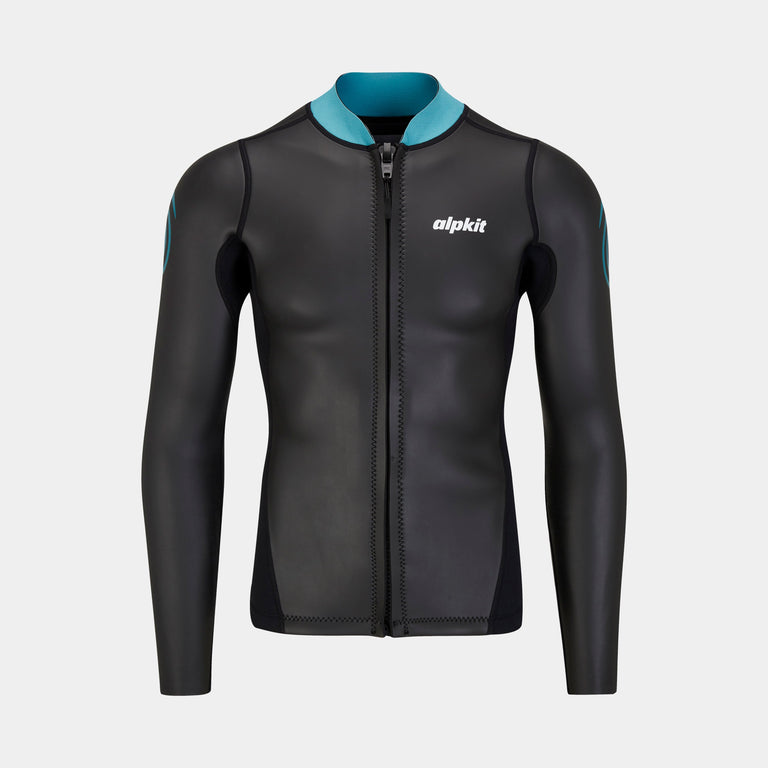
![Element Wetsuit Jacket [Mens]](http://alpkit.com/cdn/shop/products/element-mens-jacket-pants-ecom-2.jpg?v=1695902047&width=768)
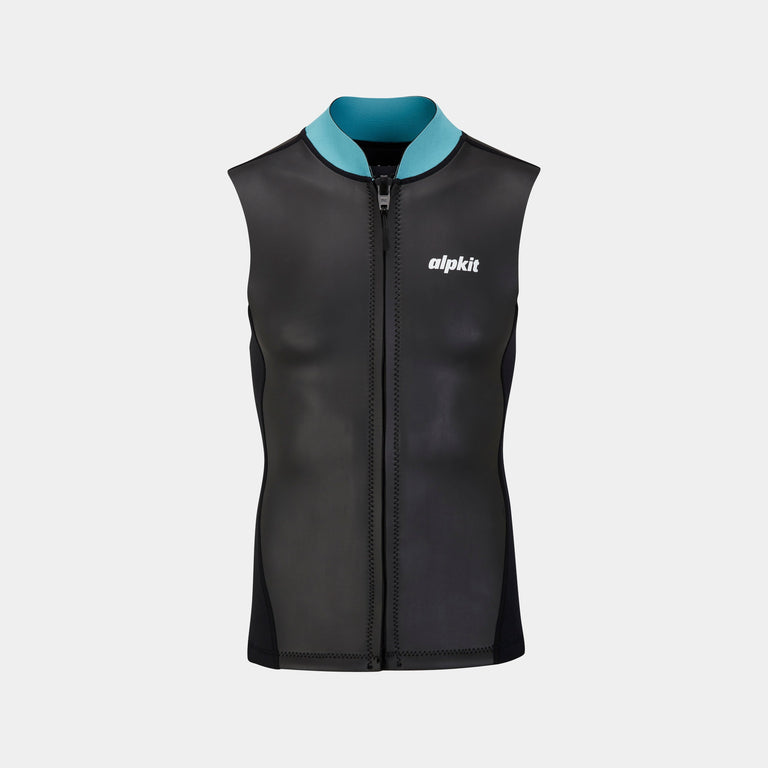
![Element Wetsuit Vest [Mens]](http://alpkit.com/cdn/shop/products/element-mens-vest-shorts-ecom-2_bed513c4-b564-4446-856d-d889f90f885e.jpg?v=1695902060&width=768)
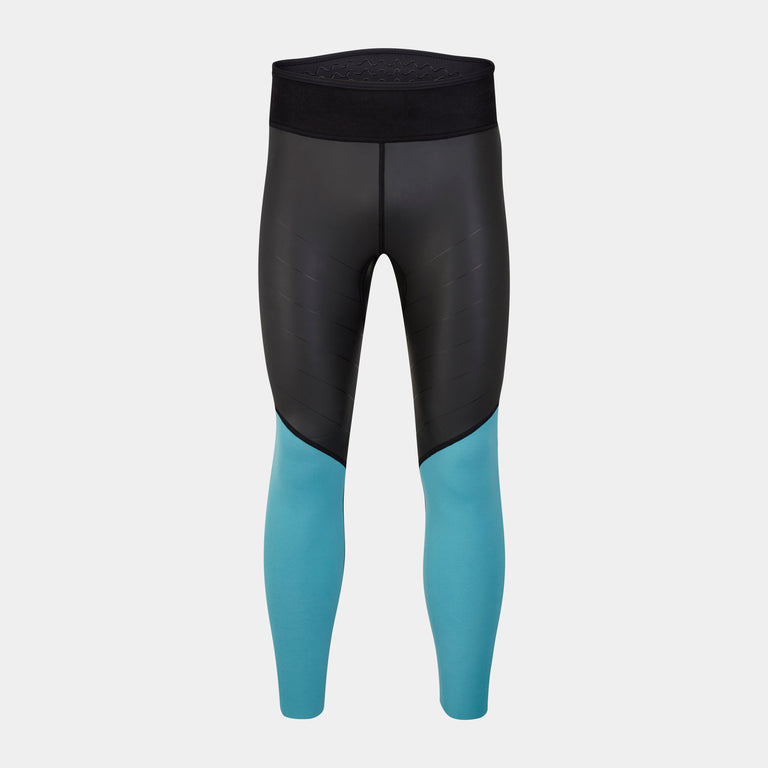
![Element Wetsuit Pants [Mens]](http://alpkit.com/cdn/shop/products/element-mens-jacket-pants-ecom-2_38dbf092-f607-4bbd-bd7a-0477da29bcef.jpg?v=1695902051&width=768)
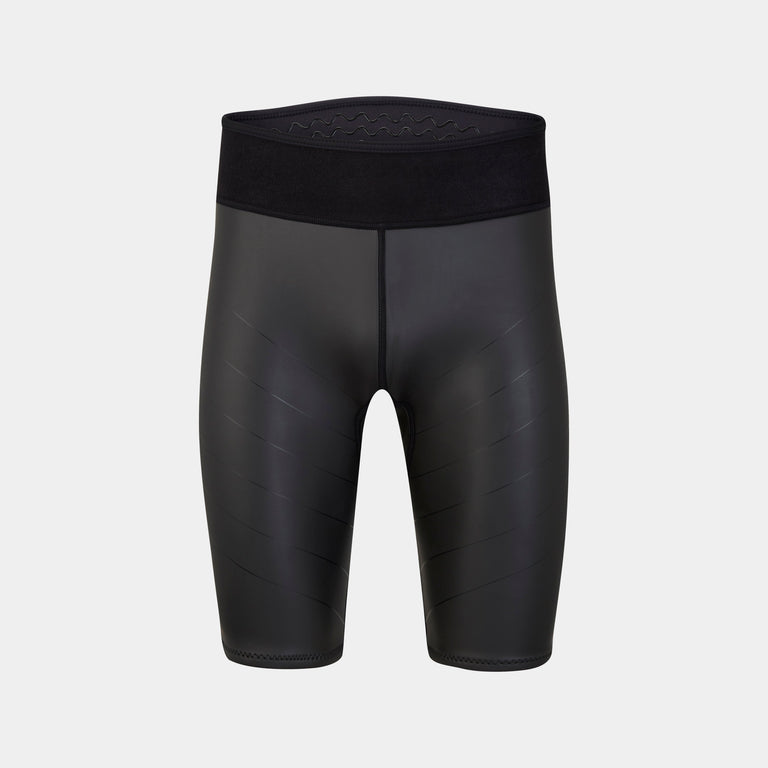
![Element Wetsuit Shorts [Mens]](http://alpkit.com/cdn/shop/products/element-mens-vest-shorts-ecom-2.jpg?v=1695902057&width=768)
![Element Wetsuit Shorts [Womens]](http://alpkit.com/cdn/shop/files/womens-element-shorts.jpg?v=1702653059&width=768)
![Element Wetsuit Shorts [Womens]](http://alpkit.com/cdn/shop/products/element-womens-vest-shorts-ecom-1.jpg?v=1702653054&width=768)
